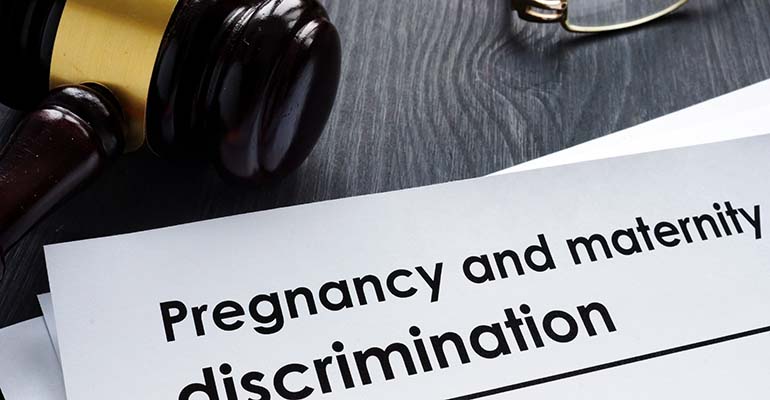
Pregnancy Discrimination Act of 1978: Protecting Pregnant Women at Work
Pregnant women in the workplace have been protected against discrimination for decades, thanks to the Pregnancy Discrimination Act of 1978. This critical legislation remains relevant and much needed today. Unfortunately, pregnancy discrimination is still not uncommon, but knowing your rights and protections is vital to assist you in making the best legal decisions for your family and your career.
What is the Pregnancy Discrimination Act of 1978?
The Pregnancy Discrimination Act protects female workers from employment discrimination by their employers in the hiring process and on the job. Administered by the Equal Employment Opportunity Commission (EEOC), the Pregnancy Discrimination Act of 1978 is an amendment to Title VII of the Civil Rights Act of 1964. The act covers a wide range of discriminatory actions and serves as the primary legislation that holds employers accountable for illegal behavior under its mandate.

Some examples of what the Pregnancy Discrimination Act covers include:
- Firing a Pregnant Employee
- Discriminating Against an Employee
- Harassing an Employee Because They Are Pregnant
- Not Providing Reasonable Job Accommodations
- Refusing To Hire Someone Because They Are Pregnant or Have Just Given Birth
- Forcing an Employee to Change Jobs
Pregnant women and women who have just given birth should be treated equally. The Pregnancy Discrimination Act of 1978 also covers maternity discrimination. This happens when someone is mistreated (or fired) after recently giving birth or breastfeeding at work. The legislation also protects women who are retaliated against after filing a complaint about pregnancy discrimination. Retaliation in the workplace against an employee could include such actions as demotions, firing, changing schedules or duties, or harassment.
On Hiring and Working Conditions
The Pregnancy Discrimination Act explicitly says that an employer cannot refuse to hire a woman because of her pregnancy-related condition as long as she can perform the major functions of her job. In addition, the legislation forbids discrimination based on pregnancy when it comes to any other aspect of employment, including pay, benefits, training, promotions, layoffs, job assignments, and any other term or condition of employment.
If an employee is temporarily unable to perform her duties due to her pregnancy-related condition, the employer must treat her just like they would any other employee of limited physical abilities. This includes providing modified tasks or light duty, alternative assignments, leave without pay, or disability leave.
What Does the Pregnancy Discrimination Act of 1978 Require to Hold Employers Accountable?
In proving a case of pregnancy discrimination, there are several circumstances/actions that the legislation can utilize to hold employers accountable and bring justice to employees. These can include:
- A brief amount of time between the adverse action (firing, demoting, harassment, etc.) and a decision maker’s knowledge of your pregnancy, childbirth, or related medical condition
- An explicit company policy that allows less favorable treatment for pregnant workers as opposed to other employees or job candidates
- Statements communicated by decision-makers to workers, either a pregnant employee or other employees, that demonstrate a bias against pregnant women such as terms like “Mommy track”
- Less favorable treatment compared to employees who are not pregnant
An employment discrimination attorney helps workers if they believe they have been discriminated against because they are pregnant. It is important to consult with an attorney even if you are unsure if you have enough proof to hold employers accountable.
What Should You Do if You Have Been Discriminated Against Because You Are Pregnant?
A claim needs to be filed with the EEOC or the Florida Commission on Human Relations (FCHR) if you have been the victim of workplace discrimination because you are pregnant. The claim should be detailed regarding what happened and provide relevant contact information of all involved parties. Under the Pregnancy Discrimination Act of 1978, the time limit is 180 days from when the discrimination took place. Florida law allows that to be extended to 300 days for a federal law claim and up to 365 days for a state law claim.
A workplace discrimination attorney understands the comprehensive details of the Pregnancy Discrimination Act of 1978, as well as related employment laws addressing discrimination. It is advisable to consult an attorney to determine your best legal options moving forward to help you, your family, and your career.
Have you been the victim of pregnancy discrimination in the workplace?
Contact Wenzel Fenton Cabassa P.A. today to set up a free consultation. We help employees across Florida hold employers accountable for their unlawful actions.
Other Pregnancy Discrimination Articles:
Top 8 Examples of Pregnancy Discrimation
In The Workplace Top 10 FAQs About Pregnancy Discrimination
An Action Plan for Women Who’ve Been Fired for Being Pregnant In Florida
Please Note: At the time this article was written, the information contained within it was current based on the prevailing law at the time. Laws and precedents are subject to change, so this information may not be up to date. Always speak with a law firm regarding any legal situation to get the most current information available.








